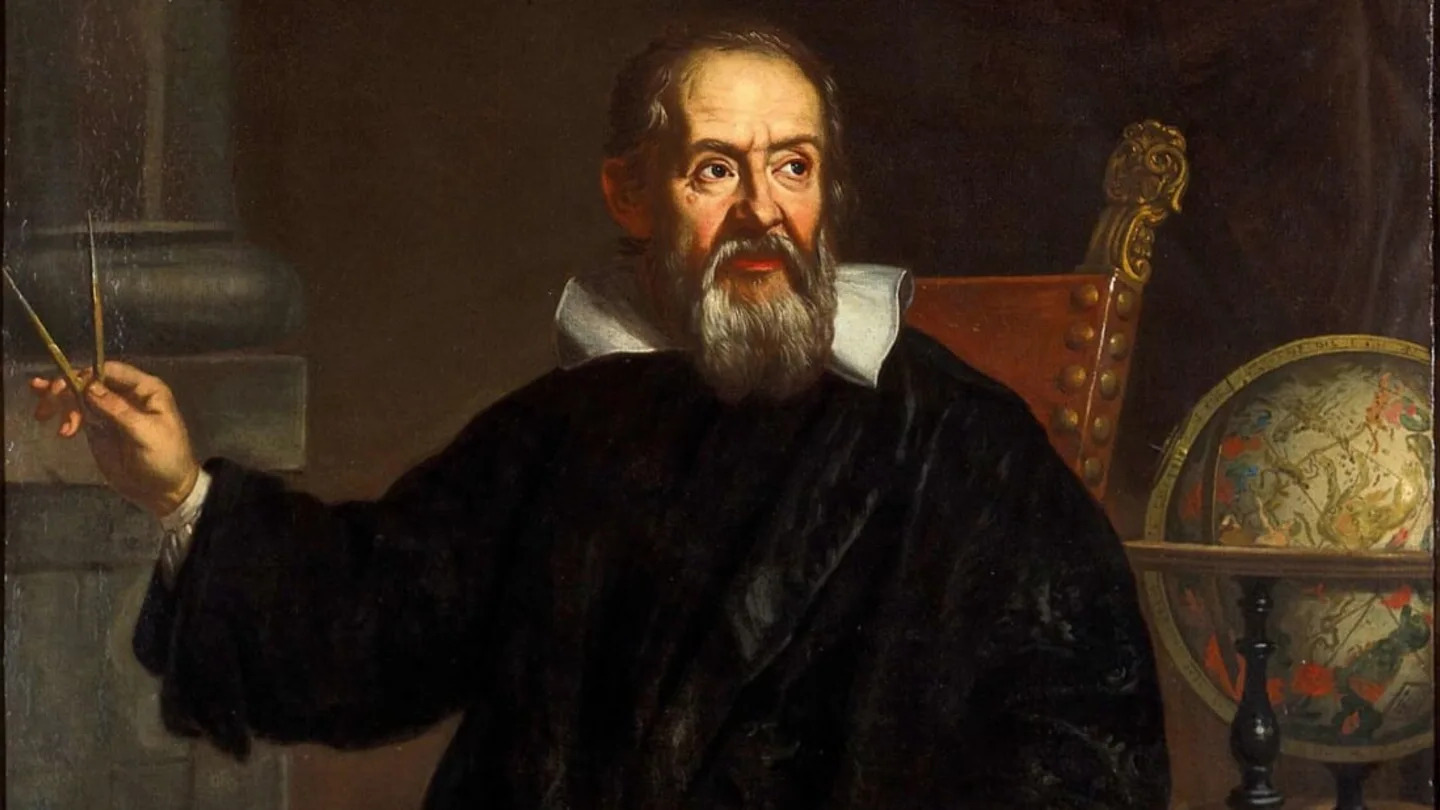
Ever wondered who the father of modern science is? Galileo Galilei holds that prestigious title, and for good reason. Born in Pisa, Italy, in 1564, this brilliant mind changed the way we look at the universe. From improving the telescope to making groundbreaking astronomical discoveries, Galileo's contributions are monumental. But there's more to his story than just his scientific achievements. His clash with the Catholic Church over the heliocentric model of the solar system is legendary, showcasing his unwavering commitment to truth and knowledge. Ready to get your mind blown by some fascinating facts about Galileo Galilei? Buckle up, because we're about to take a whirlwind tour through the life of this iconic figure, revealing why he's such a big deal in the world of science and beyond.
Key Takeaways:
- Galileo Galilei, a brilliant scientist, faced challenges from the Catholic Church for his support of the heliocentric theory, but his groundbreaking work in astronomy and physics continues to influence scientific thought today.
- Despite facing opposition from the Catholic Church, Galileo Galilei's innovative use of the telescope, discovery of Jupiter's moons, and advocacy for heliocentrism left a lasting impact on modern observational astronomy and physics.
Early Life of Galileo Galilei
Galileo Galilei, born in Pisa, Italy, on February 15, 1564, was a polymath who made significant contributions to various fields such as physics, mathematics, and astronomy. His early life set the stage for a legacy that would forever change how humanity views the cosmos.
-
Galileo was the eldest of six children in a well-to-do family. His father, Vincenzo Galilei, was a musician and scholar, which influenced Galileo's early education and his approach to scientific inquiry.
-
Despite financial difficulties, Galileo enrolled at the University of Pisa in 1581 to study medicine. However, his interest quickly shifted to mathematics and physics, leading him to abandon his medical studies without a degree.
Galileo's Scientific Achievements
Galileo's contributions to science are vast and varied, laying the groundwork for modern physics and observational astronomy.
-
In 1609, Galileo heard about the invention of the telescope in the Netherlands. He quickly improved upon the design, creating a version that could magnify objects up to 20 times. This invention allowed him to make groundbreaking astronomical observations.
-
He discovered four of Jupiter's moons – Io, Europa, Ganymede, and Callisto – in 1610. These celestial bodies are collectively known today as the Galilean moons.
-
Galileo's observations of the phases of Venus provided strong evidence for the Copernican system, which posits that the Earth and other planets orbit the Sun. This was contrary to the prevailing geocentric model, which placed Earth at the center of the universe.
-
He also observed and analyzed sunspots, challenging the Aristotelian belief in the unchanging perfection of the heavens.
Galileo's Conflict with the Church
Galileo's support for the heliocentric model of the solar system brought him into conflict with the Catholic Church, a powerful institution in his time.
-
In 1616, the Church warned Galileo not to hold, teach, or defend the heliocentric theory. Despite this, he continued his studies and advocacy for the Copernican system.
-
His publication of "Dialogue Concerning the Two Chief World Systems" in 1632, which openly supported heliocentrism, led to his trial by the Inquisition.
-
Galileo was found "vehemently suspect of heresy" and forced to recant his views. He spent the rest of his life under house arrest.
Galileo's Legacy and Death
Despite the challenges he faced, Galileo's work had a lasting impact on science and the way we understand our place in the universe.
-
Galileo is often called the "father of modern observational astronomy" due to his innovative use of the telescope and his detailed recordings of celestial phenomena.
-
He is also hailed as the "father of modern physics" for his contributions to the understanding of motion, strength of materials, and inertia.
-
Galileo passed away on January 8, 1642, in Arcetri, near Florence, Italy. His contributions continued to influence scientific thought and exploration long after his death.
Interesting Facts About Galileo
Galileo's life and work are filled with interesting tidbits that highlight his genius and the challenges he faced.
-
Despite his revolutionary scientific achievements, Galileo's writings were placed on the Catholic Church's Index of Forbidden Books in 1616, where they remained for more than 200 years.
-
Galileo developed a method of determining longitude based on the timings of the moons of Jupiter, a concept that was ahead of its time.
-
He was the first to describe the phenomenon of pendulum motion, which would later be used to regulate clocks.
-
Galileo's middle finger is preserved and displayed at the Museo Galileo in Florence, Italy, serving as a peculiar relic of the renowned scientist.
-
He wrote a number of works in Italian rather than Latin, making his ideas more accessible to the general public and not just the scholarly community.
-
Despite being a devout Catholic, Galileo's advocacy for heliocentrism put him at odds with the Church, showcasing the complex relationship between faith and science.
-
Galileo's work laid the foundation for Isaac Newton's laws of motion and universal gravitation.
-
He once said, "And yet it moves," allegedly after recanting his heliocentric theory, though this story is apocryphal and symbolizes his unwavering belief in his scientific findings.
A Glimpse into Galileo's Legacy
Galileo Galilei's story is more than just a tale of scientific discovery; it's a testament to the power of curiosity and perseverance. Through his telescope, Galileo not only saw the heavens in a new light but also challenged the very foundations of understanding in his time. His contributions to astronomy, physics, and the development of the scientific method have left an indelible mark on the fabric of science. Galileo's journey reminds us that questioning the status quo, pushing boundaries, and exploring the unknown are the cornerstones of progress. His legacy, rich with discoveries and insights, continues to inspire generations of scientists, thinkers, and curious minds around the globe. Let's carry forward his spirit of inquiry, for it's in asking bold questions that we uncover the universe's most profound secrets.
Frequently Asked Questions
Was this page helpful?
Our commitment to delivering trustworthy and engaging content is at the heart of what we do. Each fact on our site is contributed by real users like you, bringing a wealth of diverse insights and information. To ensure the highest standards of accuracy and reliability, our dedicated editors meticulously review each submission. This process guarantees that the facts we share are not only fascinating but also credible. Trust in our commitment to quality and authenticity as you explore and learn with us.


